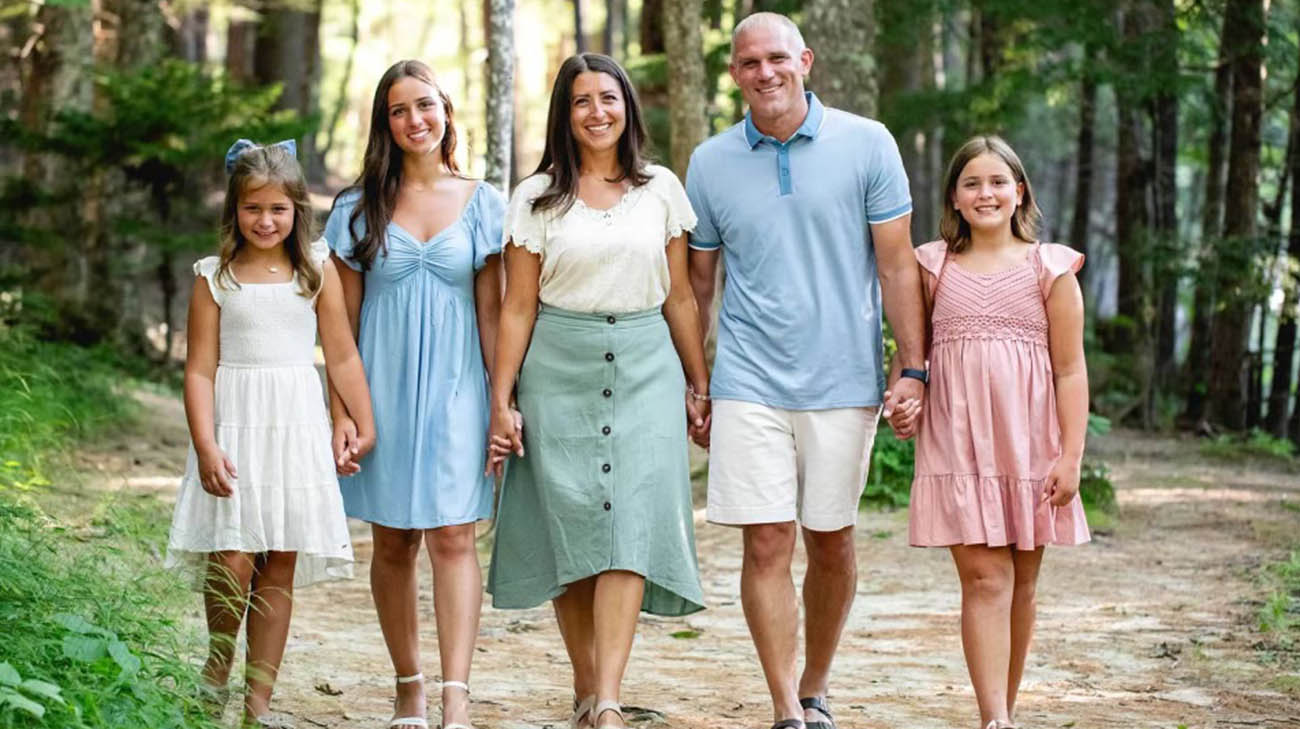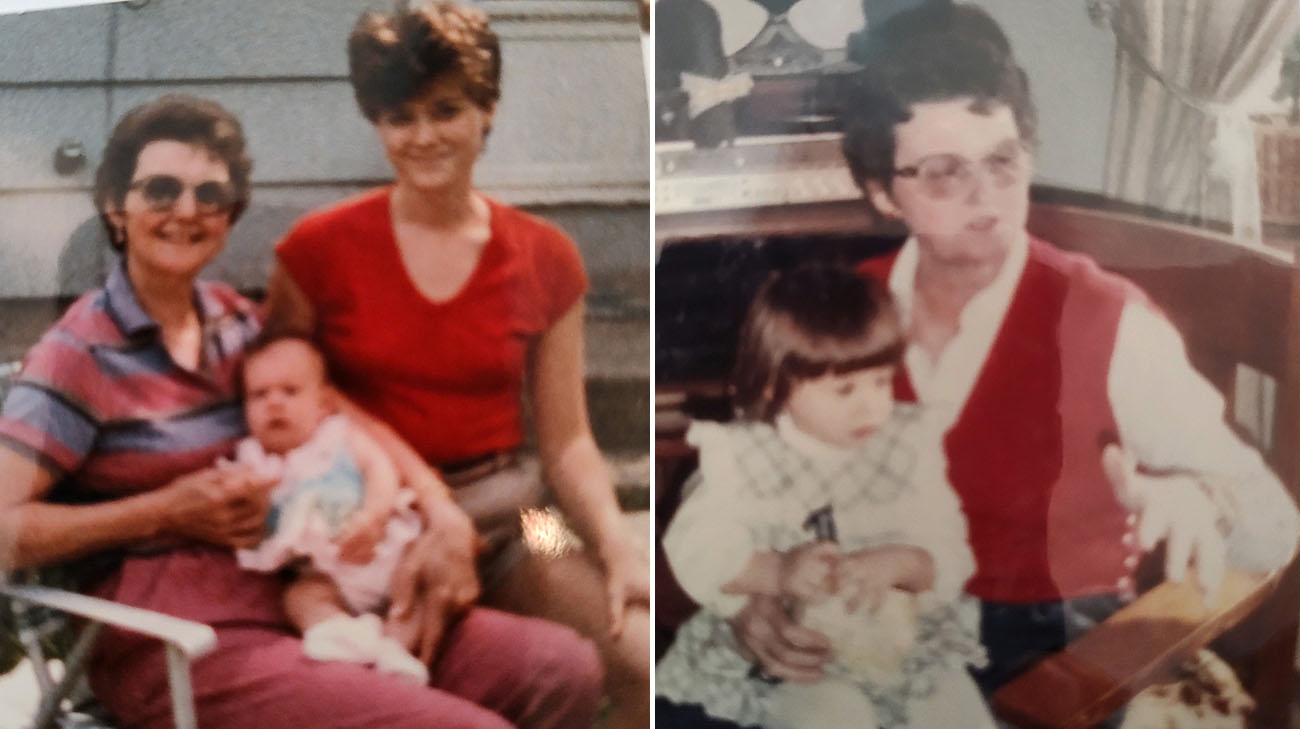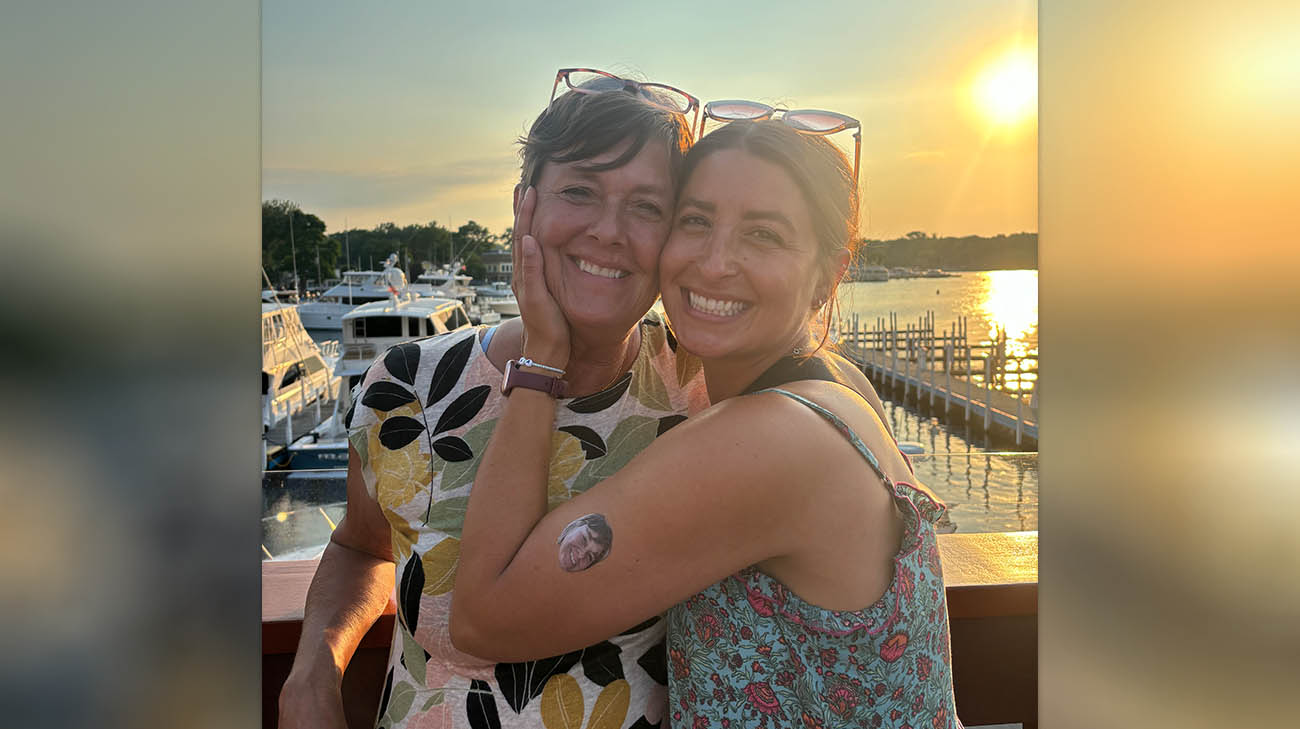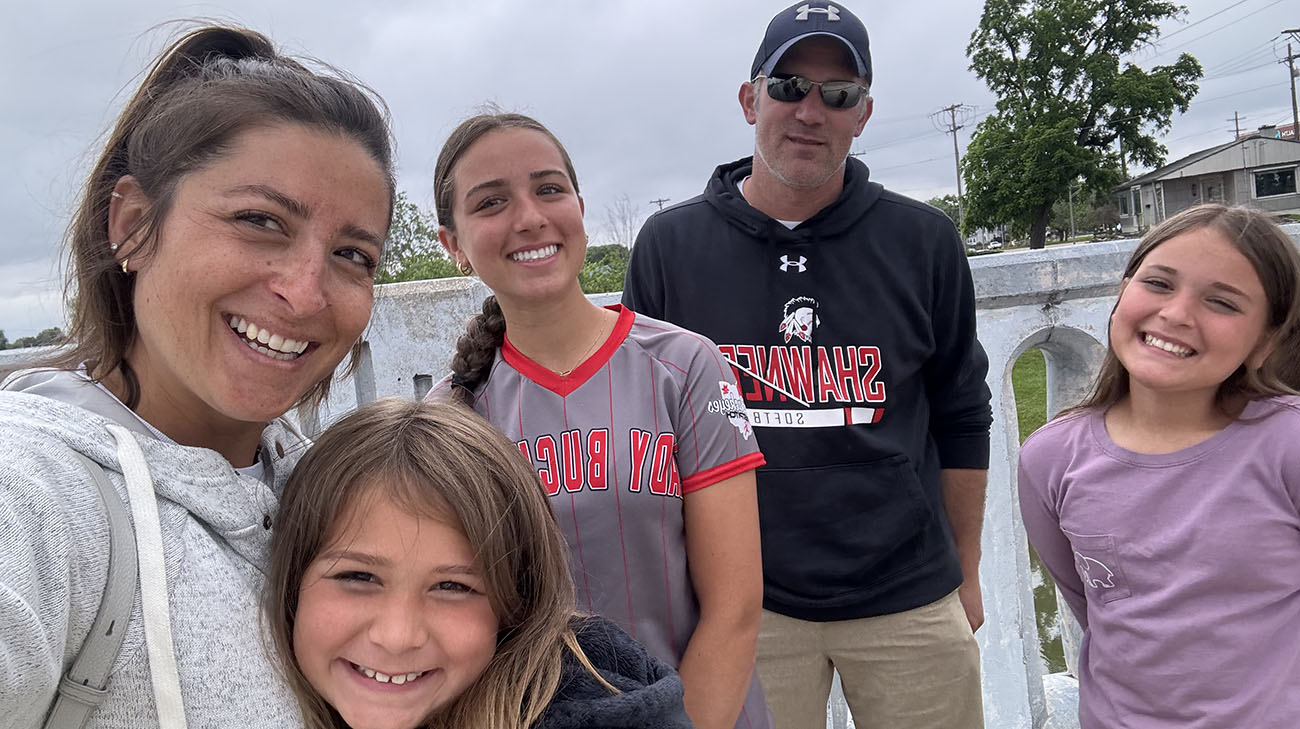
Jennifer Lichty is the model of good health. She and her family eat healthy meals, and she exercises six days a week. But as Jennifer now knows, some things are out of her control, like family health history.
Growing up in Defiance, Ohio, Jennifer remembers her maternal grandmother had heart issues and passed away in her mid 50s. It was devastating but not discussed. Jennifer knew her mother had cholesterol and blood pressure issues through the years, but that wasn’t talked about or considered a concern at the time.
After college, marriage and children, Jennifer started making her own health a priority. Even though Jennifer did not have symptoms, her mom encouraged her to get blood work done because of the history of heart issues she and her mother had. Jennifer was 32.

Jennifer's maternal grandmother and mother all had a history of heart issues. (Courtesy: Jennifer Lichty)
Now living in Lima, Ohio, with her husband and three daughters, Jennifer took her mom’s advice and discovered her total cholesterol level was “crazy high.” She worked with her local physician for several years trying to lower it with medications but didn’t see significant results. Further tests also were concerning, so Jennifer was referred to a cardiologist.
In May 2024, Jennifer saw Cleveland Clinic cardiologist Ashish Sarraju, MD. After reviewing her health records and history, Dr. Sarraju diagnosed Jennifer with familial hypercholesterolemia (FH), a genetic condition, and ordered a cardiac catheterization to gain a clearer understanding of the health issue.
People with FH have very high levels of low-density lipoprotein (LDL) cholesterol, which is considered the “bad” cholesterol because it can block arteries in the heart. A healthy LDL level is less than 100 mg/dL (milligrams per deciliter), but people with FH can have an LDL of 160 to 400 mg/dL or higher. Jennifer’s LDL was 323.
Leslie Cho, MD, director of Cleveland Clinic’s Women’s Cardiovascular Center, performed the cardiac cath and found Jennifer had 80% blockage in two of her arteries. Dr. Cho inserted stents in both of them. Jennifer returned about one month later for the second stent. A heart stent opens the artery that has become blocked by a buildup of cholesterol plaque.
Without treatment, people with FH have a higher risk of getting coronary artery disease early, which can lead to heart attacks and other cardiovascular issues at a much younger age than people who don’t have the genetic condition.

After Jennifer's FH diagnosis, her mother (left) now sees a cardiologist regularly. (Courtesy: Jennifer Lichty)
To prevent further blockages, Dr. Sarraju has Jennifer on three cholesterol medications. In addition to a healthy diet and exercise, Jennifer will continue maintenance medications and regular checkups throughout her life.
“I had never heard of FH until Dr. Sarraju diagnosed it,” Jennifer says. About 1 in 250 people have FH, but most of them (90%) don’t know they have it.
Jennifer says Dr. Sarraju explained that she couldn’t have done anything differently to prevent FH.
Women are typically undertreated for FH, according to Dr. Cho. “Women need to be aware of high cholesterol. Substantial gaps in awareness and treatment between men and women still exist that can leave women at high risk for a health emergency.”
“The only reason we knew about Jennifer’s FH risk was through a blood test,” said Dr. Cho. “Women should know their risk.”

Jennifer wants to empower and educate her three daughters about FH. (Courtesy: Jennifer Lichty)
On the recommendation of her doctors, Jennifer is focused on getting her daughters (ages 15, 12 and 8) tested for FH and consulting with a pediatric cardiologist. “I’m very open with my girls because I want to educate them about what cholesterol numbers mean. That’s my role now, and I want them to be part of the decision-making.” Jennifer’s mom is now seeing a cardiologist, too.
“Working full time and having young children, I definitely put my health on the back burner,” says Jennifer, a high school math teacher who is now 39 years old.
Her advice, especially for women, is to take care of yourself, too. Don’t ignore the little things that may be signs of something bigger. “We get busy and make a thousand excuses, saying I’ll do it later, then 10 years pass.”
After each of her stent procedures, Jennifer says Dr. Cho called her to see how she was feeling. “I am so fortunate to have a group of doctors taking care of me who weren’t satisfied,” Jennifer says. “They kept pushing in a good way and wanting more questions answered. I am so thankful and blessed.”
Related Institutes: Heart, Vascular & Thoracic Institute (Miller Family)

